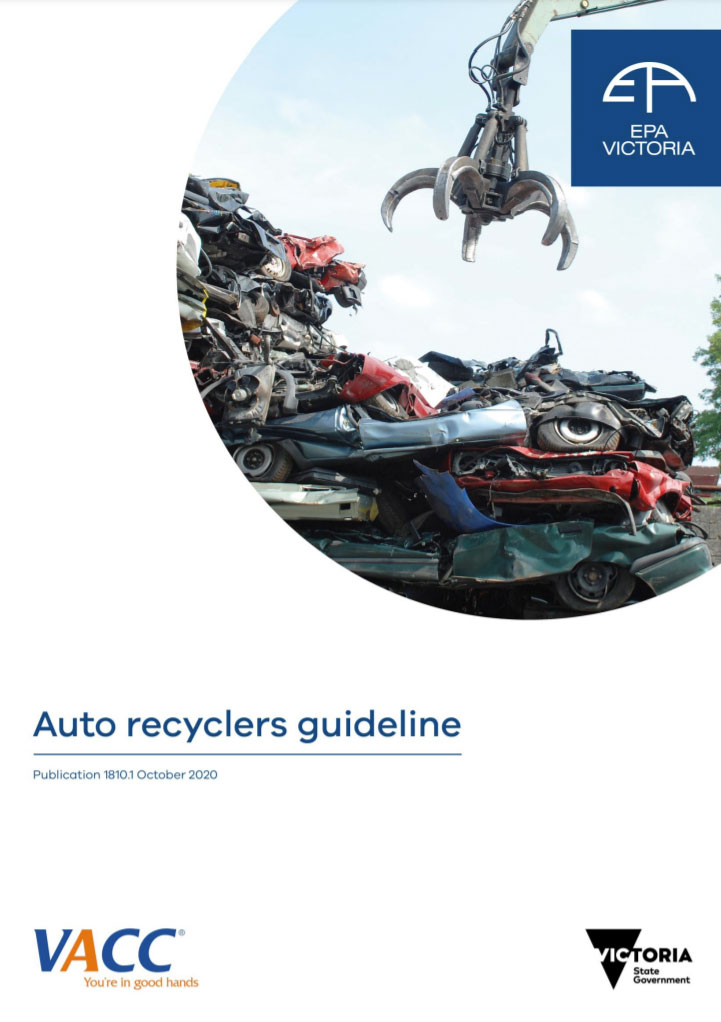New regs could help clean up scrap cars
- PostedPublished 18 December 2021
Latest environmental legislation could cut down on refrigerant emissions from end-of-life vehicles
The Environment Protection Authority (EPA) of Victoria has welcomed the introduction of overhauled legislation that requires businesses to be more proactive about protecting the environment.
In force from 1 July 2021, the new Environment Protection Act 2017 grants the EPA an array of new powers, including measures designed to actively prevent pollution and the ability to issue tougher penalties.
For example, the maximum penalty for corporations committing illegal dumping has been doubled to $A1.8 million, while individuals breaching the law now face a 50 per cent higher penalty of up to $700,000.
Also, in a first for Australian legislation, the Act contains a “general environment duty” that outlines how individuals and companies conducting potentially environment-harming activities must understand and act to minimise or eliminate risks – and if they don’t, they can be prosecuted.
The new Act and its requirements have significant repercussions for automotive dismantlers, given the nature of the materials and chemicals in end-of-life vehicles (ELVs).
The Victorian Automotive Chamber of Commerce (VACC), as a result, is advising those involved in the industry to identify potential risks and sources of harm, to avoid the unintentional and unlawful release of pollutants – such as environment-harming refrigerant.
Emissions of residual refrigerants from ELVs, in particular, has long been a problem; a 2013 government report identified that only 10 per cent of ELV refrigerant was being recovered, leading to estimated emissions of some 168.3 tonnes.
Identifying and tracking those releasing refrigerants illegally is challenging, in part due to a lack of resources and enforcement. However, the VACC says that the new regulations should deliver increased accountability and reduce harm to the environment.

“The new EPA permission system requiring auto recyclers to be registered, combined with the requirement for vehicle dismantling and recycling activities to be undertaken at a ‘lawful place’ is set to vastly increase the transparency of auto recycling operations throughout Victoria,” said Dale Imlach, director of VACC member-business Imlachs Self Serve Auto Parts and chairman of the Auto Parts Recyclers Association of Australia.
“We are encouraged that, with time and investment, a level playing field and environmental improvement can be achieved. The issue of unlicensed businesses undermining licensed businesses in our industry – and the waste industry generally – has constrained business development over the last 20 years.”
Whether the existence of the requirements alone will be enough to result in a significant shift, given that no mention has been made of additional policing, remains to be seen; SightGlass has contacted the VACC for further details on this front. On the upside, the new regulations do further highlight the issue, and do have both the EPA and VACC behind them.
The authorities are at least actively policing prominent unlawfully operating breakers, primarily to counter the theft and resale of vehicles with illegal identities. An investigation published by the Sunday Herald Sun revealed that around 200 vehicles in Victoria, valued at some $5 million, had been seized by the police in the past year.
More could be done, though; in Sweden, for example, incentives are being employed to coerce more workshops into recovering and sorting refrigerants – with the aim being to create a sustainable economy that uses recovered refrigerants.
This, according to a story published on specialist website Cooling Post, should also help cut down atmospheric emissions, reduce the use of illegal refrigerants and minimise the demand for production and transport of new gases.
However, according to statistics from the energy switching website Save on Energy, it is currently Germany that is doing the best when it comes to recycling ELVs in Europe, with it surpassing the claimed EU average by 7.75 per cent, reportedly thanks to large scrappage schemes. Malta is unquestionably the worst, at -17.6 per cent below the EU average, followed by Italy at -6.99 per cent.
- CategoriesIn SightGlass
- TagsSightglass News Issue 25

